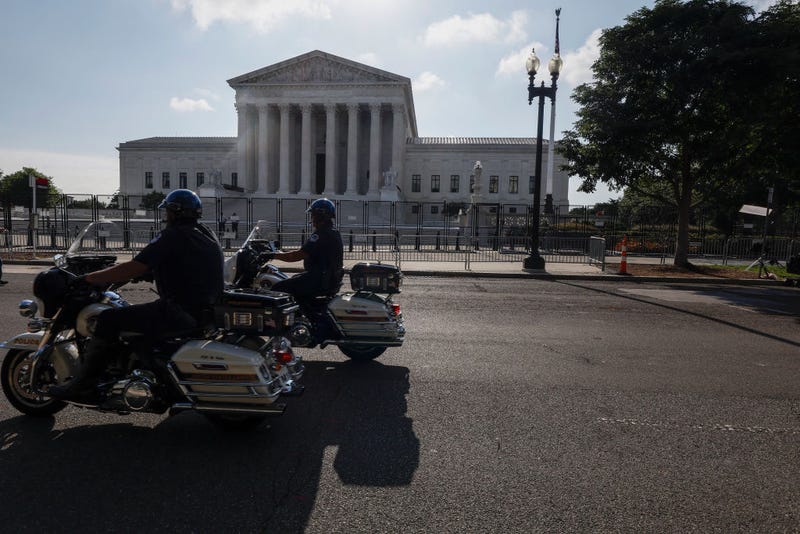
The Supreme Court typically issues a decision, along with a dissent if the decision isn't 9-0. Sometimes, a justice will decide to issue a concurrent opinion if he or she's voice is not fully represented in the decision or dissent. Such is the case today.
Samuel Alito issued an absolutely blistering opinion on the New York gun law, which by the way, he won 6-3. This is uncommon.
From CNN: "The fact that Alito, who joined Thomas' opinion in full, chose to also strike out alone against the dissenters highlights the current tension on the court triggered by a blockbuster docket and the unprecedented leak of a draft majority opinion in May overturning Roe v. Wade."
But it's the content of the opinion that demands attention.
Alito absolutely dismantles his colleagues' rationale on the gun law itself. "How does the dissent account for the fact that one of the mass shootings near the top of its list took place in Buffalo? The New York law at issue in this case obviously did not stop that perpetrator."
To reemphasize, the dissenting judges were arguing that the New York law should be left in place to stop mass shootings like the one in Buffalo. The one in Buffalo, NY, that happened while the law in question was in effect, and did not stop the mass shooting, should be left in place to prevent other mass shootings in New York, and elsewhere.
He adds, "Does the dissent think that laws like New York's prevent or deter such atrocities? Will a person bent on carrying out a mass shooting be stopped if he knows that it is illegal to carry a handgun outside the home?"
But this isn't really about the gun law. This is about judicial philosophy. The judicial philosophy of some of these judges needs to return to its constitutional intent for them to effectively serve the citizenry. Ultimately, Alito strikes at this, too.
"It is hard to see what legitimate purpose can possibly be served by most of the dissent's lengthy introductory session....Why, for example, does the dissent think it is relevant to recount the mass shootings that have occurred in recent years?"
Not only are their arguments about guns foolish, but they're completely unrelated to the way a court case should be handled, especially at the Supreme Court level. Getting back to judicial philosophy, the role of the judge is not to bring up current trends, public sentiment, or even prevailing opinion. That's the legislature's role, which (theoretically) responds directly to the people's wishes. The court is there to make sure the legislature- at the federal or state level- doesn't infringe on the rights protected in the Constitution. That is, in fact, its only job. And anything beyond that is lawmaking.
"But what about precedent?"

Precedent is used when the Constitution, followed by established law, is unclear. The argument against overturning Roe v. Wade is that it overturns established precedent, from other SCOTUS cases. But if and when the court does overturn Roe, it will be because the court itself, in previous cases, overstepped those very bounds and CREATED new law. There is no "right to an abortion" in the Constitution, nor is there a right to an abortion or anything similar ever passed by Congress. The court will be returning to its Constitutionally prescribed roots in overturning that law, and this week's decisions show that the court is very much moving in that direction.
Ryan Wiggins is the author of the extremely serious and not funny robot novel, The Life of Human, and is a writer and producer of television shows. He is the host of Wiggins America on 97.1 FM Talk in St. Louis.
